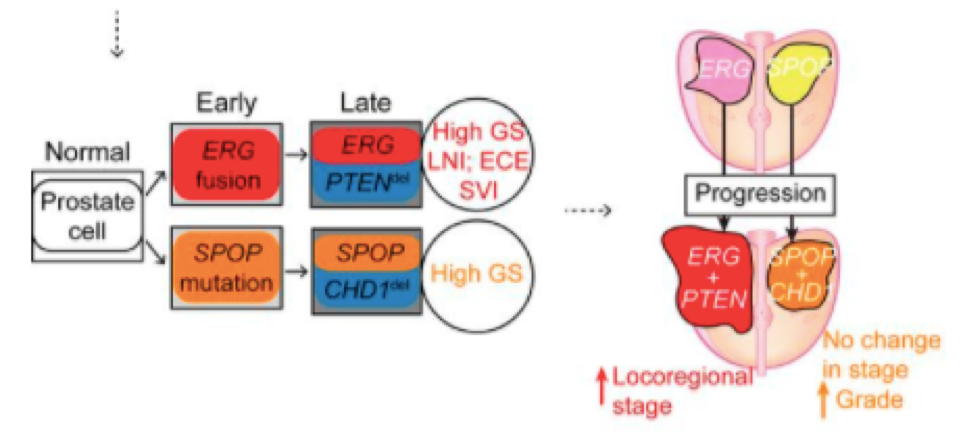Prostate cancer (PCa), second only to skin cancer in prevalence among American men, has multiple subtypes defined by which key gene was mutated early in disease progression. Molecular analysis of PCa tumors has illuminated these subtype-defining genetic events, yet it remains unclear how these early alterations influence later genetic events and, eventually, result in different clinical outcomes. While molecular characterization often guides treatment decisions in breast and other cancers, more clarity is needed about these pathways for PCa subtyping to be clinically relevant.
At Weill Cornell Medicine, Damon Runyon Clinical Investigator Chris Barbieri, MD, PhD, and colleagues are leading this charge. Using a combination of genomic and clinical data from over eight thousand PCa patients, Dr. Barbieri’s team has identified two distinct models of prostate cancer progression, evolving from either a mutated SPOP gene or the fusion of two ERG genes, which result in distinct subtypes. For each subtype, they defined “early” and “late” genetic alterations, and showed that occurrence of late events was associated with a worse prognosis. Importantly for clinicians, they also linked late events with recognizable pathologic features. In the SPOP subtypes, late events were associated with increased cancer grade, meaning the cancer cells look more abnormal. In the ERG subtypes, late events were associated with increased cancer stage, or tumor size, in a particular region.

These findings suggest that the subtype-defining alteration (in either SPOP or ERG) actually has less bearing on prognosis than the degree of cancer progression, as indicated by the occurrence of late events. With a clearer picture of what those late events are for each subtype, it becomes possible to use biomarkers—biological measurements of disease progression—to guide treatment decisions. These findings will also be relevant in future clinical trials, as they illuminate the molecular pathways by which various prostate cancers develop.
This research was published in the Journal of Clinical Investigation.







